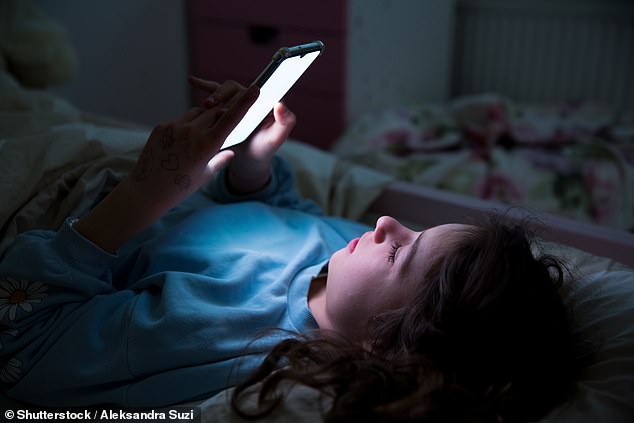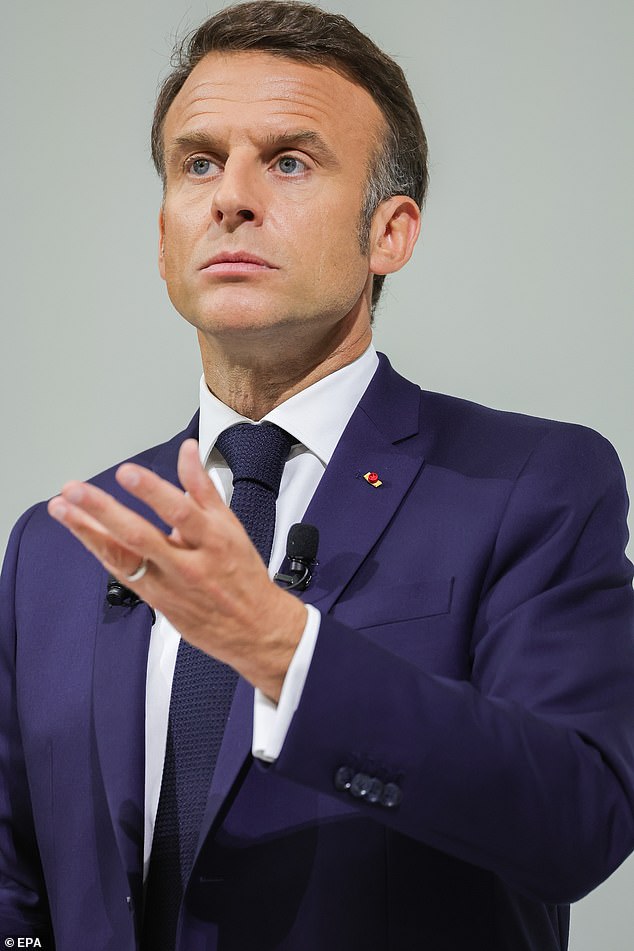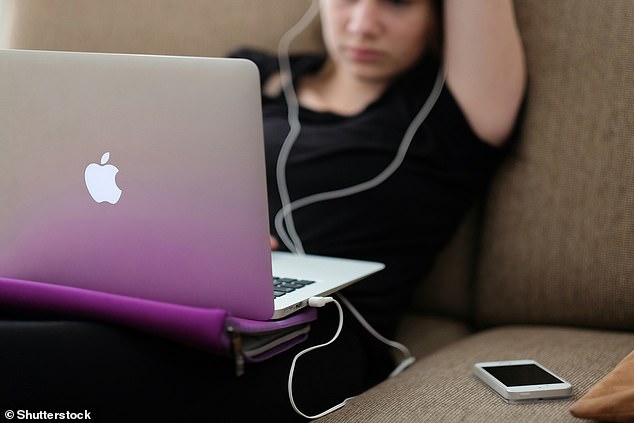Children under 11 will be BANNED from having smartphones and children under 15 will not be allowed to use social media under strict rules, supported by Emmanuel Macron
Emmanuel Macron will back a proposed ban on the use of smartphones for children under 11 and social media for children under 15 across France, it emerged last night.
The French president has backed the proposals made earlier this year in a report by a panel of experts commissioned by the Elysee Palace, amid growing concerns about the negative effects of technology and social media use on children and teenagers.
Macron placed the issue on his presidential agenda early this year, as approval ratings fell.
But there’s no word on how such a blanket ban would be implemented, with lawmakers now having to decide which apps qualify for the ban and work out the finer details of implementing the recommended measures.
President of France Emmanuel Macron is seen during a press conference on June 12, 2024 in Paris, France

Macron will back a proposed ban on the use of smartphones for children under 11 and social media for children under 15 across France, it emerged last night.
The expert panel, led by neurologist Servane Mouton and psychiatry professor Amine Benyamina, and also including experts in education, law and technology, presented its findings to Macron in April.
It recommended that all children under the age of 11 should not use a smartphone and should not be given a smartphone with internet access before the age of 13.
Social media apps should be banned for anyone under the age of 15, she added, and minors over the age of 15 should only be able to access platforms deemed “ethical” – although the report did not specify which of such platforms restrictions would be excluded.
There is currently no timetable for new legislation and it is unclear to what extent it would follow the experts’ recommendations.
The group said any future steps should focus on tightening rules for tech companies.
“They are the ones primarily responsible,” Mouton told a news briefing in April.
The manner in which such a ban would be implemented remains unclear, with commentators divided over whether app makers and tech companies would be forced to build age restrictions into their applications, or whether parents would be responsible for enforcing the ban at home .
Some tools for limiting screen time and runtime on social media applications are already built into most smartphones, but these limits can be changed by the user at any time.
This has raised questions about whether the French government will try to introduce legislation requiring tech companies to enable some sort of age verification tool.
Olivier Ertzscheid, a lecturer in information and communication sciences, told AFP in January that the main questions center on the legal basis and social acceptability of such an obligation.
“These kinds of measures would be unprecedented in a democratic European country,” he added.
But there is a body of evidence suggesting that young people’s mental health is negatively affected by social media use.

Macron put the issue on his presidential agenda early this year, amid falling approval ratings, in an effort to respond to growing international unrest that new technologies may do more harm than good for young minds

There is a body of evidence suggesting that young people’s mental health is negatively affected by social media use

Internet addiction rewires teens’ brains and may make them more likely to engage in other addictive behaviors, new research suggests (file photo)
A UCL study published earlier this month found that the addictive nature of social media platforms rewires teenagers’ brains and can make them more likely to engage in other addictive behaviours.
The findings, published in the journal PLOS mental healthindicate that Internet addiction is associated with disrupted signaling in brain regions involved in multiple neural networks.
Their study, which reviewed twelve separate neuroimaging studies of adolescents with heavy Internet use, found that when Internet-addicted tees engage in activities controlled by the brain’s executive control network – such as behaviors that require attention, planning, decision-making and especially impulsivity – those brain regions showed a ‘significant’ disruption in their ability to work together.
Study co-author Max Chang said: ‘These networks play an important role in controlling our attention, in conjunction with intellectual abilities, working memory, physical coordination and emotional processing.
‘All this in turn has an impact on mental health.
‘Given that adolescent brains are more capable of changing than adults, understanding the effects of internet addiction on the brain and behavior is critical for society as a whole.’
